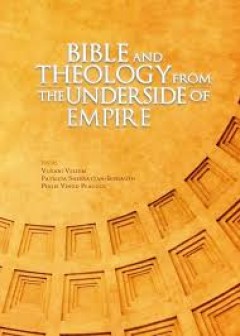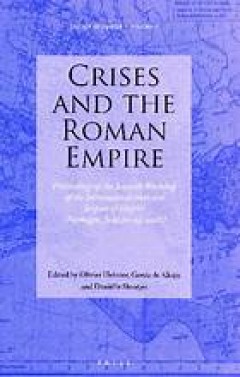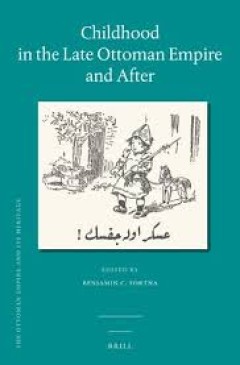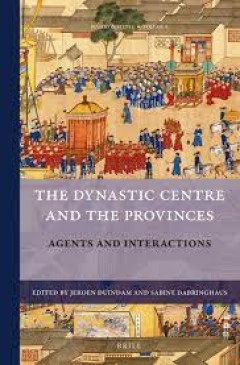Filter by

Bible and Theology from the Underside of Empire
Empire’ has become an apt label to name the present horizon of global life and is associated with logic and practices which threaten human life in myriad ways. These reflections not only expose the true nature of empire, but suggest an alternative vision of flourishing wrought by God’s kingdom
- Edition
- -
- ISBN/ISSN
- 9781928355113
- Collation
- -
- Series Title
- -
- Call Number
- -

Empire Under the Microscope: Parasitology and the British Literary Imagination
This open access book considers science and empire, and the stories we tell ourselves about them. Using British Nobel laureate Ronald Ross (1857-1932) and his colleagues as access points to a wider professional culture,Empire Under the Microscopeexplores the cultural history of parasitology and its relationships with the literary and historical imagination between 1885 and 1935. Emilie Taylor-P…
- Edition
- -
- ISBN/ISSN
- 978-3030847166
- Collation
- oer.unej.ac.id
- Series Title
- -
- Call Number
- -

Empires of the Sea Maritime Power Networks in World History
Empires of the Sea brings together studies of maritime empires from the Bronze Age to the Eighteenth Century. The volume aims to establish maritime empires as a category for the (comparative) study of premodern empires, and from a partly ‘non-western’ perspective. The book includes contributions on Mycenaean sea power, Classical Athens, the ancient Thebans, Ptolemaic Egypt, The Genoese Empi…
- Edition
- -
- ISBN/ISSN
- 978-90-04-40767-1
- Collation
- oer.unej.ac.id
- Series Title
- Cultural Interactions in the Mediterranean, Volume: 4
- Call Number
- -

East and West in the Roman Empire of the Fourth Century
East and West in the Roman Empire of the Fourth Century examines the (dis)unity of the Roman Empire in the fourth century from different angles, in order to offer a broad perspective on the topic and avoid an overvaluation of the political division of the empire in 395. After a methodological key-paper on the concepts of unity, the other contributors elaborate on these notions from various geo…
- Edition
- -
- ISBN/ISSN
- 978-90-04-29193-5
- Collation
- oer.unej.ac.id
- Series Title
- Radboud Studies in Humanities, Volume: 5
- Call Number
- -

Early Christians Adapting to the Roman Empire Mutual Recognition
In Early Christians Adapting to the Roman Empire: Mutual Recognition Niko Huttunen challenges the interpretation of early Christian texts as anti-imperial documents. He presents examples of the positive relationship between early Christians and the Roman society. With the concept of “recognition” Huttunen describes a situation in which the parties can come to terms with each other without f…
- Edition
- -
- ISBN/ISSN
- 978-90-04-42824-9
- Collation
- oer.unej.ac.id
- Series Title
- Novum Testamentum, Supplements, Volume: 179
- Call Number
- -

Crises and the Roman Empire
This volume presents the proceedings of the seventh workshop of the international thematic network 'Impact of Empire', which concentrates on the history of the Roman Empire and brings together ancient historians, archaeologists, classicists and specialists on Roman law from some 30 European and North American universities. The seventh volume focuses on the impact that crises had on the developm…
- Edition
- -
- ISBN/ISSN
- 978-90-47-42090-3
- Collation
- oer.unej.ac.id
- Series Title
- Impact of Empire, Volume: 7
- Call Number
- -

Crises and the Roman Empire Proceedings of the Seventh Workshop of the Inter…
This volume presents the proceedings of the seventh workshop of the international thematic network 'Impact of Empire', which concentrates on the history of the Roman Empire and brings together ancient historians, archaeologists, classicists and specialists on Roman law from some 30 European and North American universities. The seventh volume focuses on the impact that crises had on the developm…
- Edition
- -
- ISBN/ISSN
- 978-90-04-16050-7
- Collation
- -
- Series Title
- Impact of Empire, Volume: 7
- Call Number
- -

Childhood in the Late Ottoman Empire and After
This volume explores the variety of ways in which childhood was experienced, lived and remembered in the late Ottoman Empire and its successor states. The period of the late nineteenth and early twentieth centuries was a time of rapid change, and the history of childhood reflects the impact of new expectations, lived realities and national responsibilities on the youngest members of societies u…
- Edition
- Volume: 59
- ISBN/ISSN
- 978-90-04-30580-9
- Collation
- -
- Series Title
- -
- Call Number
- -

Administration, Prosopography and Appointment Policies in the Roman Empire: P…
The title of this volume is ‘Administration, Prosopography and Appointment Policies in the Roman Empire’. The papers contained in this volume focus on all three of these themes, within the context of the impact of the Roman empire upon the regions it dominated. The papers contained in the first part of the volume concentrate on appointment policies, career structures and the impact of milit…
- Edition
- Volume: 1
- ISBN/ISSN
- 9789004401617
- Collation
- -
- Series Title
- -
- Call Number
- -

The Dynastic Centre and the Provinces
The dynastic centre and the provinces were linked by agents and ritual occasions. This book includes contributions by specialists examining these connections in late imperial China, early modern Europe, and the Ottoman empire, suggesting important revisions and an agenda for comparison. This title is available online in its entirety in Open Access
- Edition
- -
- ISBN/ISSN
- 9789004272095
- Collation
- -
- Series Title
- -
- Call Number
- -
 Computer Science, Information & General Works
Computer Science, Information & General Works  Philosophy & Psychology
Philosophy & Psychology  Religion
Religion  Social Sciences
Social Sciences  Language
Language  Pure Science
Pure Science  Applied Sciences
Applied Sciences  Art & Recreation
Art & Recreation  Literature
Literature  History & Geography
History & Geography